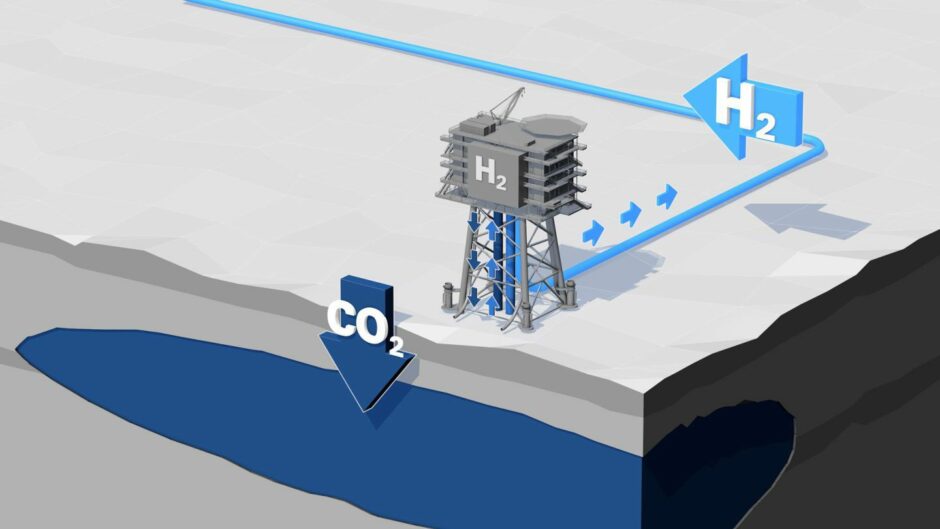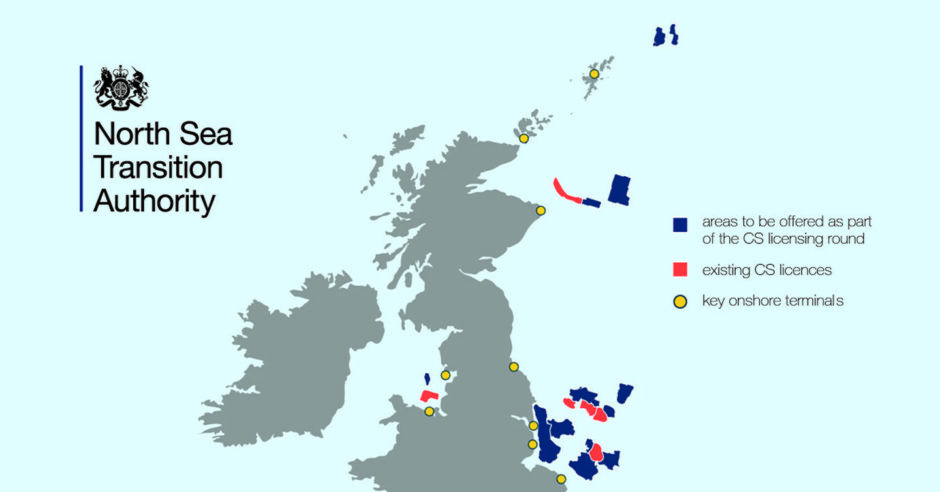
The UK is making progress on plans to store carbon dioxide emissions under the North Sea, with nearly 20 companies bidding for licences.
The North Sea Transition Authority (NSTA) said Thursday that a total of 26 bids had been submitted as part of the UK’s first-ever carbon storage licensing round.
The offshore regulator launched the round in June, with 13 areas up for grabs off the coasts of Aberdeen, Teesside, Liverpool and Lincolnshire.
A total of 19 companies expressed interest in the areas on offer, bids for which will now be evaluated with a view to awarding licences in early 2023, the NSTA said.
That includes Eni, which confirmed this week it had applied for a licence for the depleted Hewett field in the Southern North Sea, as well as two bids from Australian developer Synergia Energy.
Alongside the six carbon capture and storage (CCS) licenses that have already been awarded, these new areas have the potential to make a significant dent in the target to lock away between 20 to 30 million tonnes of CO2 by 2030.
The sites were made available for licensing following consideration of matters such as co-location with offshore wind, potential overlaps with petroleum licences and environmental issues.
They have been chosen owing to favourable right geology, proximity to existing infrastructure and links to industrial clusters which are looking to CCS to meet their decarbonisation goals.
Once infrastructure is in place, the process would see CO2 emissions from industrial processes captured and then transported, via ship or pipeline, for storage in these licensed reservoirs.
The differing sizes and scale of each project means they will progress at different speeds, but the first injection of CO2 could come four to six years after a licence is awarded, meaning projects are likely to be online by the end of the decade.
However, in addition to a licence from the NSTA, prospective developers will also need to obtain a lease from The Crown Estate or Crown Estate Scotland before they can progress a project.
“We were very pleased with the quantity and quality of applications we have received from a diverse range of applicants. The clear appetite among companies to get involved shows that the UK is well-positioned to become a world-leader in the sector,” said NSTA head of exploration and new ventures Nick Richardson.
“Carbon storage can play a big part in reducing greenhouse gas emissions into the atmosphere and awarding additional licences in 2023 will be a significant step forward.”
This round is likely to be the first of many, with NSTA noting that “up to 100” CO2 stores could be needed for the UK to meet its net zero targets.
Recommended for you

 © Supplied by NSTA
© Supplied by NSTA